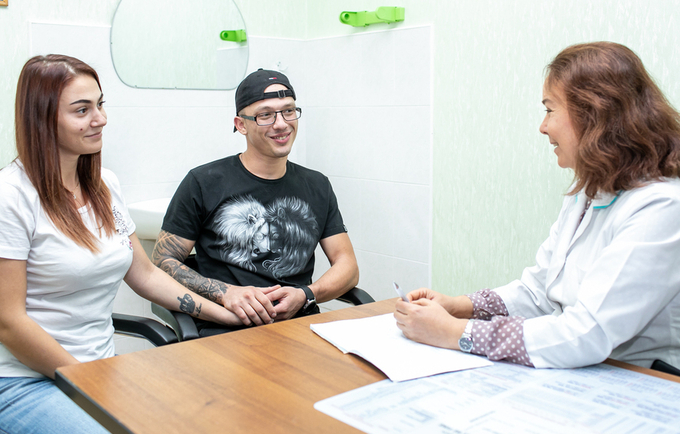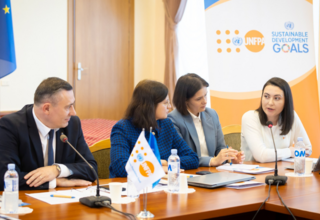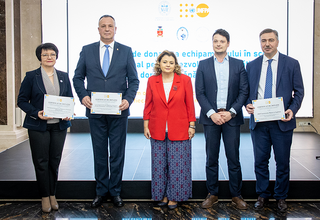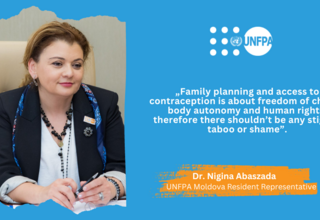The situation on sexual and reproductive health and rights in Europe has improved, but millions of people still remain behind, says a global UNFPA report. Thirty years after the international community agreed on an ambitious agenda to prioritize sexual and reproductive health and rights in global development, significant inequalities persist, leaving millions of people, especially the most disadvantaged, excluded from progress across all regions of the world, according to the UNFPA State of the World Population Report.
“The report's findings show that too many people have not benefited from the progress we have made in ensuring that women and young people are empowered to make decisions about their bodies and health and have access to the services and information they need”, said Florence Bauer, UNFPA Regional Director for Eastern Europe and Central Asia.
The use of modern contraceptives remains extremely low in parts of Eastern Europe and Central Asia - in five countries, more than half of women do not use any form of contraception.
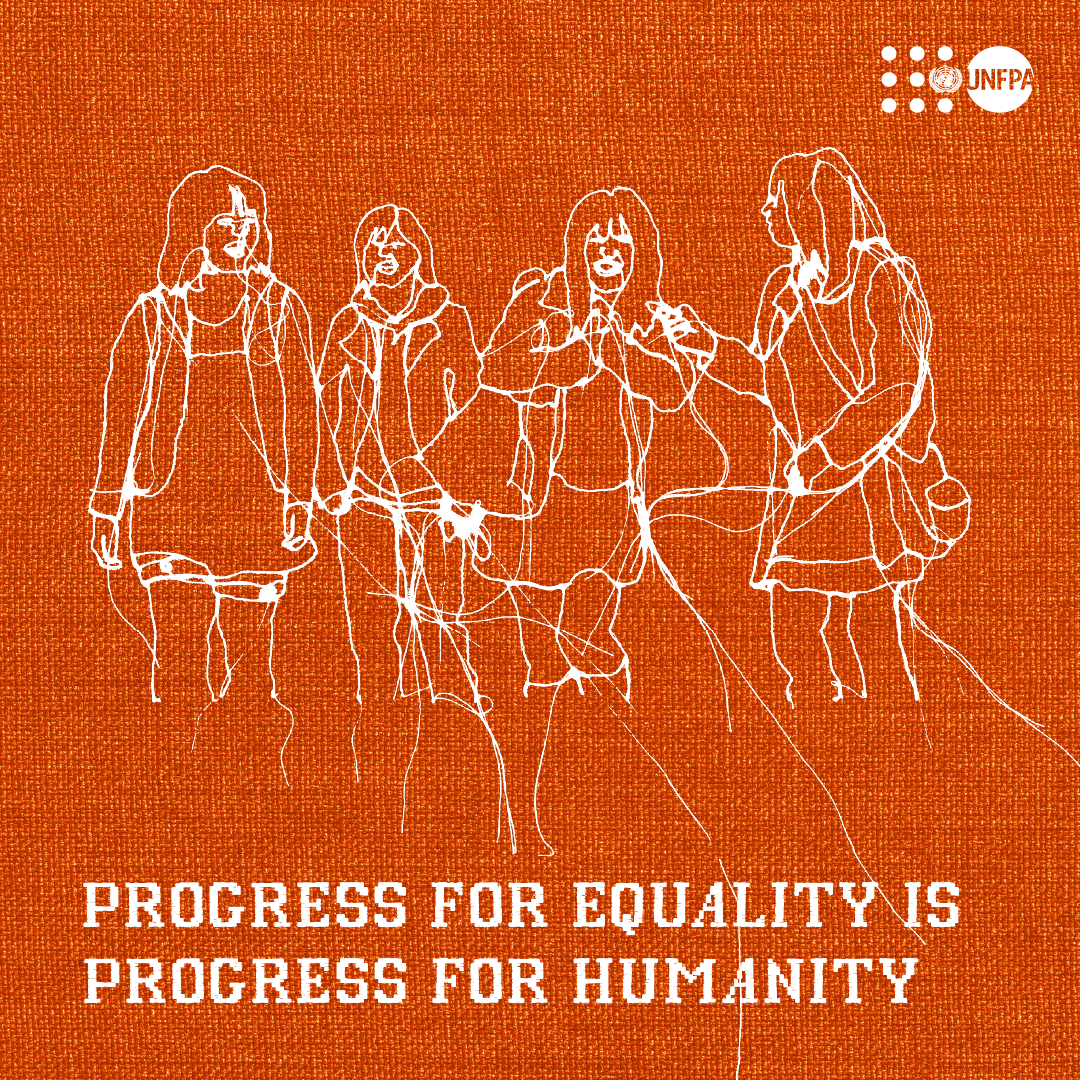
In the Republic of Moldova, progress has been made in recent years to increase the population's access to family planning services and modern methods of contraception, especially for vulnerable groups. Policies have been developed and implemented, and decisions have been made based on evidence in this area, with efforts by national partners being supported by the UN Population Fund in this context.
The “Generations and Gender” study, conducted in 2021 at the national level with the support of UNFPA, reveals that the prevalence rate of the use of modern methods of contraception among all women of reproductive age (15-49 years) is 38.1%, and the unmet need in family planning among all women of reproductive age (15-49 years) represents 16.9% (being approximately 2 times higher in rural areas compared to urban areas - 20.2% versus 11.9%).
To address the unmet need in family planning, within the national health system, the procurement and free distribution of modern contraceptives to 12 categories of vulnerable groups were initiated and carried out. Normative acts on family planning and contraception methods were developed in this context with the support of UNFPA, aimed at providing the population in vulnerable groups of reproductive age with modern methods of contraception.
“We are working for a world where every pregnancy is wanted and every birth is safe. Family planning and access to contraception is about freedom of choice, bodily autonomy, and human rights. Everyone deserves access to family planning services to plan the future and fulfill their dream”, said Karina Nersesyan, UNFPA Resident Representative in Moldova.
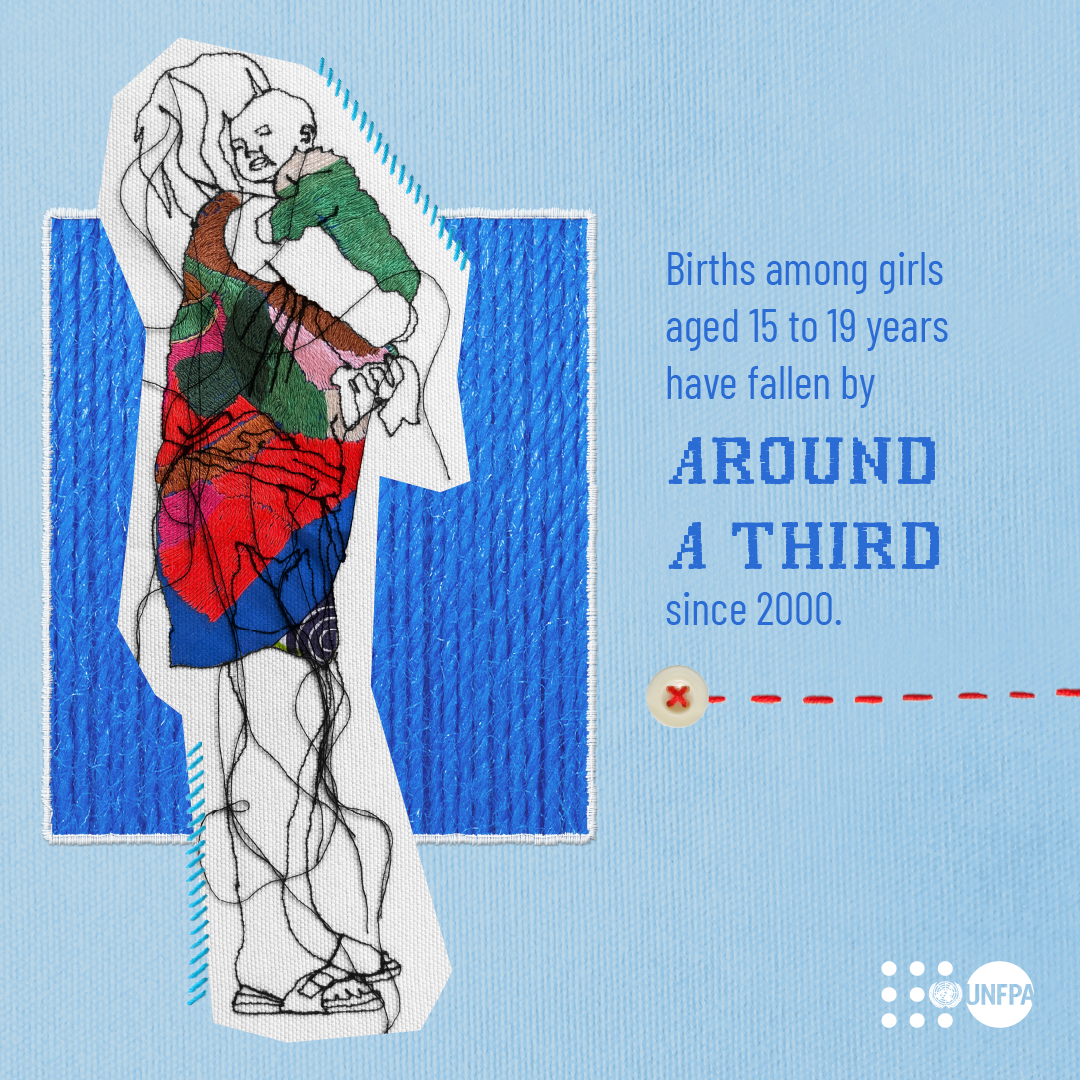
In primary health care at the national level, counseling and family planning services are offered free of charge to all people of reproductive age. The Regulation in force at the national level since 2020 expressly stipulates the 12 categories of beneficiaries eligible for the free reception of modern contraceptives, including:
- Adolescents and young people up to 24 years of age.
- Women from the obstetric risk group.
- Women from the somatic risk group (those suffering from chronic diseases with risks for pregnancy and childbirth).
- Women who have had an abortion during the last year.
- HIVpositive individuals and those in groups at increased risk of HIV infection.
- Survivors of sexual abuse, for emergency contraception.
- Survivors of human trafficking.
- Survivors of exceptional situations, humanitarian crises, or public health emergencies; persons with refugee status, beneficiaries of humanitarian protection in the Republic of Moldova, asylum seekers, stateless persons, migrants.
- Persons with disabilities, including those from residential institutions.
- People with mental health problems, recorded by the psychiatrist specialist or the family doctor.
- Users of drugs and other psychotropic substances, recorded by the narcologist.
- People with low or no income.
These efforts represent an important step taken at the national level to ensure the right to sexual and reproductive health and to reduce inequalities in access to family planning and contraception services. Victoria Ciubotaru, Coordinator of the National Program on Sexual and Reproductive Health and Rights at the Mother and Child Institute, noted that: “We want every woman to be able to plan her pregnancy using a contraceptive method. Family planning is advantageous for both the mother and child, as a desired child receives greater attention. It is also advantageous for men and for society as a whole, including the health system.”
To accelerate the provision of universal access to family planning services at the national level, in alignment with Target 3.7 of Goal 3 of the 2030 Sustainable Development Agenda, UNFPA supports the efforts of the Ministry of Health of the Republic of Moldova in 2024. This support involves strengthening the skills of medical staff within Primary Health Care to enhance the logistical management of contraceptives, including forecasting needs and providing them to vulnerable groups of the population. This will be achieved through an extensive training program conducted between March 19 and April 30, 2024, in Chisinau.
Over 250 family doctors from across the country will benefit from the training and the enhancement of contraceptive counseling capacities for beneficiaries. This will be done while emphasizing respect for human rights and centering voluntary family planning services on the needs of people of reproductive age.
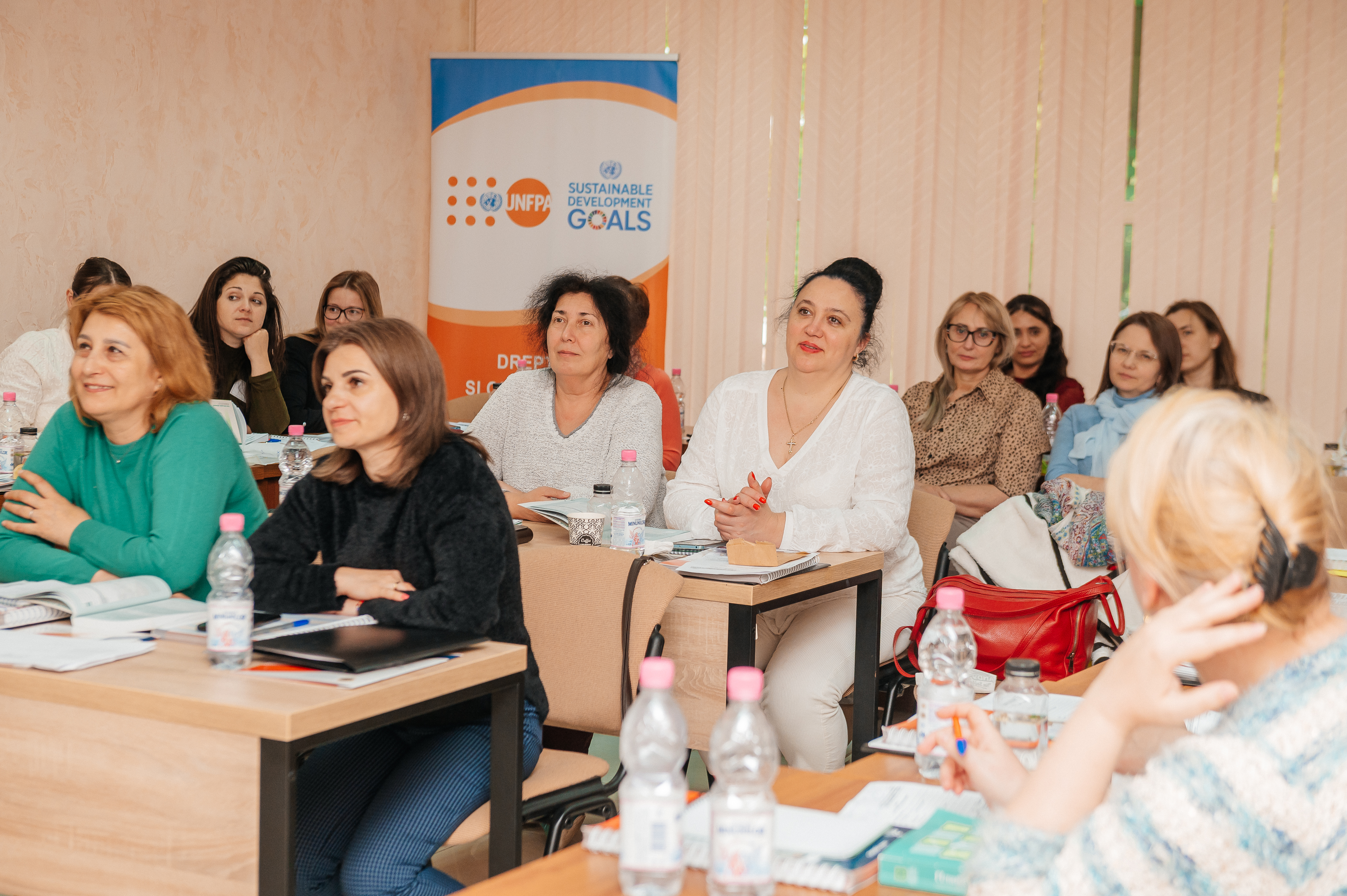
“Family doctors play an essential role in healthcare at the community level. We are often the first point of contact in the health system, and such training gives us new professional skills that help us advise patients about family planning and contraception options. We promote reproductive health and even prevent risks and diseases”, said Elena Ciobanu, Interim Head of the Javgur Health Center in Cimișlia.
The training workshops for family doctors are conducted under the auspices of the Ministry of Health, with the support of UNFPA. They are organized and implemented by the Center for Reproductive Health and Medical Genetics within the Mother and Child Institute, in collaboration with specialists from the Department of Obstetrics and Gynecology and the Department of Family Medicine of the State University of Medicine and Pharmacy "Nicolae Testemițanu."
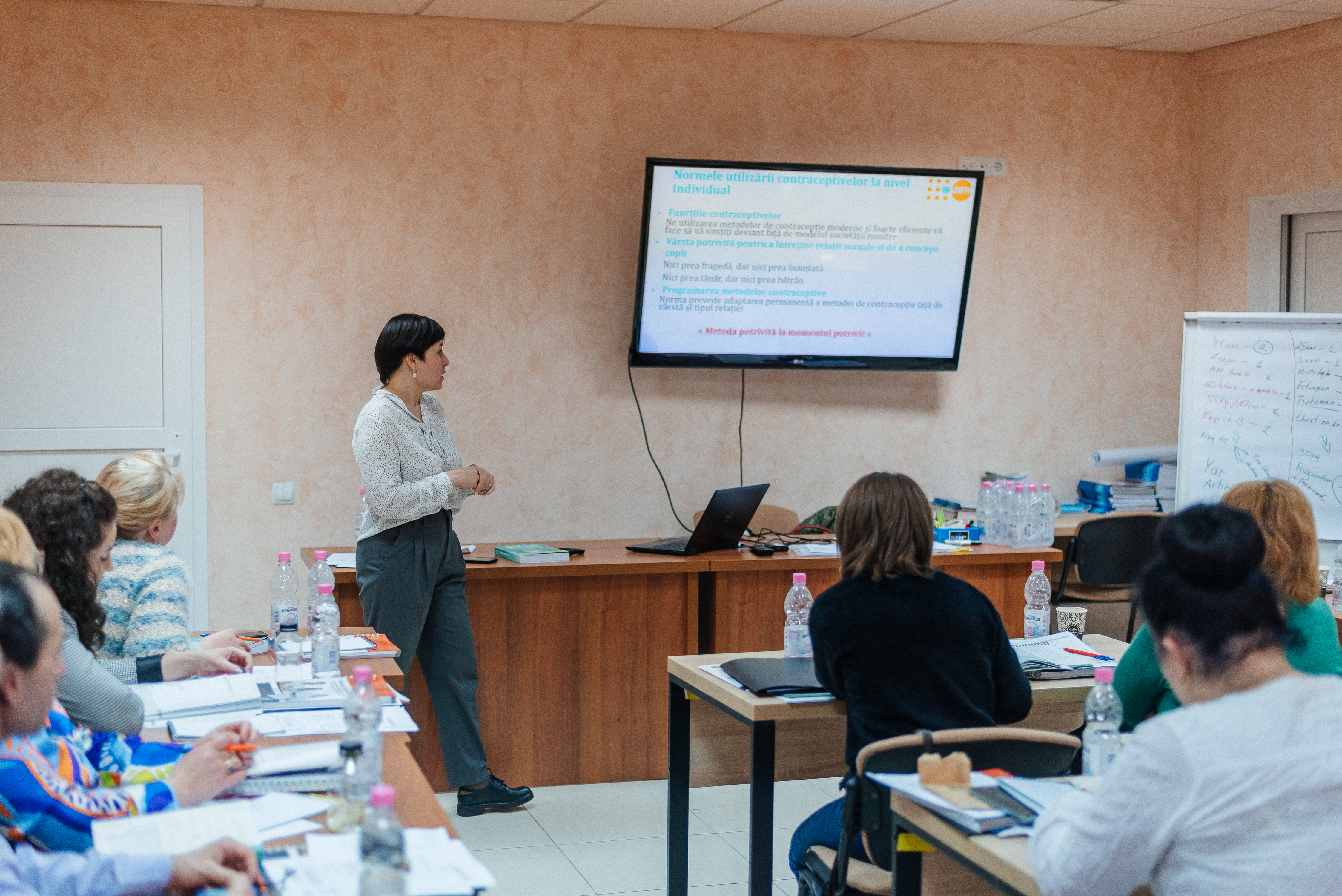
UNFPA supports countries in Eastern Europe and Central Asia in strengthening their resilience to demographic change, including through investment in human capital and greater inclusion of marginalized communities, and in ensuring the right to the highest standard of sexual and reproductive health.
